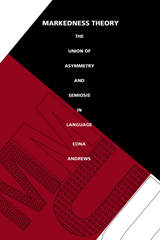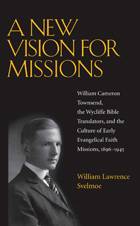3 books about 1896-1982

Jakobsonian Poetics and Slavic Narrative
From Pushkin to Solzhenitsyn
Krystyna Pomorska
Duke University Press, 1992
Krystyna Pomorska (1928–1986), a noted specialist of Slavic literature and literary theory, is best known for her pioneering work in applying Roman Jakobson's theories of poetics to prose narratives. This collection draws together and makes accessible her writings over two decades (among them articles appearing in English for the first time), and treats a wide range of Slavic literary works, including Pushkin, Tolstoy, Pasternak, Chekov, and Solzhenitsyn, as well as examples from Polish and Ukrainian literature and folklore.
Forming an intellectual and methodological whole, these essays reveal Pomorska's commitment to the principles of Jakobsonian poetics, her consistent application of these basic theoretical concepts to the analysis of literary works, and her interest in the foundations and history of literary criticism. Pomorska explores problems in both poetics (of prose as well as poetry) and literary theory, especially the relationship between biography and myth.
In Krystyna Pomorska, structuralism found a most able practitioner, and Jakobson's oeuvre an authoritative exponent and interpreter. Her volume, a guidebook to a major strain in modern criticism, will be of great interest to a broad audience of literary theorists and students of Slavic literatures and literature in general.
Forming an intellectual and methodological whole, these essays reveal Pomorska's commitment to the principles of Jakobsonian poetics, her consistent application of these basic theoretical concepts to the analysis of literary works, and her interest in the foundations and history of literary criticism. Pomorska explores problems in both poetics (of prose as well as poetry) and literary theory, especially the relationship between biography and myth.
In Krystyna Pomorska, structuralism found a most able practitioner, and Jakobson's oeuvre an authoritative exponent and interpreter. Her volume, a guidebook to a major strain in modern criticism, will be of great interest to a broad audience of literary theorists and students of Slavic literatures and literature in general.
[more]

Markedness Theory
Edna Andrews
Duke University Press, 1990
Edna Andrews clarifies and extends the work of Roman Jakobson to develop a theory of invariants in language by distinguishing between general and contextual meaning in morphology and semantics. Markedness theory, as Jakobson conceived it, is a qualitative theory of oppositional binary relations. Andrews shows how markedness theory enables a linguist to precisely define the systemically given oppositions and hierarchies represented by linguistic categories. In addition, she redefines the relationship between Jakobsonian markedness theory and Peircean interpretants. Though primarily theoretical, the argument is illustrated with discussions about learning a second language, the relationship of linguistics to mathematics (particularly set theory, algebra, topology, and statistics) in their mutual pursuit of invariance, and issues involving grammatical gender and their implications in several languages.
[more]

A New Vision for Missions
William Cameron Townsend, The Wycliffe Bible Translators, and the Culture of Early Evangelical Faith Missions, 1917-1945
William Lawrence Svelmoe
University of Alabama Press, 2008
“Cam” Townsend is rightly known as the visionary founder of the Summer Institute of Linguistics (SIL) and the Wycliffe Bible Translators. This joint effort is now the largest Protestant mission organization in the world, a mission which has dramatically changed the culture of what used to be known as faith missions.
Townsend revolutionized Protestant missions by emphasizing that missionaries needed to learn the language of the people to whom they were sent and to live among them in order to understand their communities. His system stressed training the missionaries in public health, basic education, and agricultural skills. The demonstrated success of missionaries who followed Townsend’s plan led to SIL/WBT influence in the larger societies in which the organization was present. Townsend was non-dogmatic in seeking allies to pursue his objectives, including local political movements and power structures, academics, and other religious faiths, increasing the influence of his group to the point that SIL/WBT became a major factor in the national affairs of the countries in which they were active, particularly in Latin America.
The very success of Townsend’s methods led to trouble with his base in the United States. As conservative and evangelical financial backers and prospective missionaries saw the organization and Townsend working amicably with Roman Catholics, leftist political groups, and atheist and agnostic academics, the SIL/WBT ran into trouble at home.
[more]
READERS
Browse our collection.
PUBLISHERS
See BiblioVault's publisher services.
STUDENT SERVICES
Files for college accessibility offices.
UChicago Accessibility Resources
home | accessibility | search | about | contact us
BiblioVault ® 2001 - 2024
The University of Chicago Press









